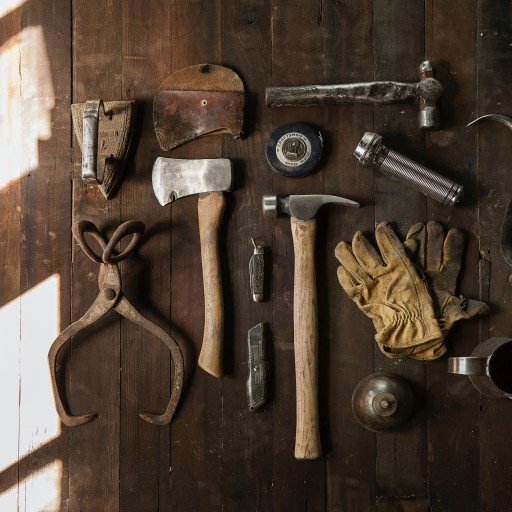Awareness of blockchain technology is spreading beyond the walls of software companies, dorm rooms, and other enclaves of seemingly irrelevant nerdery. Almost without exception, the first application of blockchain technology that people hear about is “Cryptocurrency”:
“Bitcoin hits an all-time high”
“Dogecoin makes a coin based on a dog meme”
“Someone’s investment goes 1000x in a month”
“Tesla accepts Cryptocurrency as payment”
These stories are the headline-grabbing face of blockchain. It makes sense: Bitcoin, the first cryptocurrency, was the first wildly successful application of blockchain technology. What’s more, all humans seem to have an enduring shared interest in money.
But did you know that blockchain is more than just digital money? I can remember when I realized this for the first time! More recently, I was still surprised by the diversity of examples of blockchain applications when I went looking.
Enjoy this list of ways that blockchain is “Not Just Digital Money”, and start dropping these tidbits in conversation with friends.
- If one pallet of Romaine lettuce crops up with e.coli – Salads are #Canceled across the CONTINENT for a month. Why? We have no reliable, end-to-end systems for food traceability. Blockchain protocols are being designed to track food from field to table for greater food safety and transparency.
- Home Depot stocks 35K products in 2k stores. Mixups about what products have shipped from which vendors, to which stores, and when payments are released are relatively common.Usually these communication gaps and errors cost lots of time and money. Home Depot is changing that paradigm by using blockchain for total transparency and an instant feedback loop
- Accusations and conspiracy theories surrounding election results threaten the foundations of democracy. Blockchain can provide safe and convenient voting, fast results, and total transparency.
- Making a living as an artist is challenging. Digital art and music haven’t made it easier - yet. Blockchain NFTs can be coded to AUTOMATICALLY give the Artist a cut of the sale price, every time the NFT changes hands!
- Decentralized Autonomous Organization (DAO) is a new way of organizing work and increasing personal agency, enabled by blockchain technology.
- Ever had issues with property titles? Whether intentional or (often) accidental, admin errors of the past result in costly delays and legal fees today. Smart Contracts on the Blockchain eliminate errors, costs and middlemen.
- Did you know HOSPITALS are a top target for cybercriminals? They are a gold mine of valuable personal information. Blockchain Smart Contracts provide the answer for privacy, secure sharing, and patient trust.
- Fraudulent insurance claims cost millions of dollars per year to investigate and resolve. Blockchain Smart Contracts can reduce overhead by performing frequent-error checks and enforcing policy rules, before human admins get involved. Savings would be reflected to consumers.
- In case of an untimely death, imagine skipping the time delays, legal hassles, and dreaded phone calls using blockchain Smart Contracts. What if the input of a death certificate ID automatically released insurance funds?
- The University of Wyoming has a blockchain research lab, including a Cardano Staking Pool run by CompSci students, and partially funded by cooperating classes from the University Business School.
- Dreamers, Developers, and Inventors are proposing ideas and requesting funding to create blockchain solutions for tomorrow on Cardano through Project Catalyst. Winners are voted in and funded via secure voting on the blockchain.
- In Kenya, NGOs like Ngong Road Children’s Foundation provide good education to children who don’t otherwise have that opportunity. An important measure of the program’s success is graduates who get a job in the “Formal” Kenyan economy. But guess what? Kenya’s College grads can’t work in the FORMAL Kenyan economy until they receive their certificate after graduation – a process which can take up to TWO YEARS after graduation, due to bureaucratic sludge, red tape, and corruption. Meanwhile, life happens. Students who get a degree or certification may never actually seize the opportunities they worked hard to earn. Could blockchain help with something like this? Just north of the Kenyan border in Ethiopia, the Ministry of Education is using the Cardano blockchain to track the school records of 5 million students. Due to the inherent SECURE nature of blockchain, these records are tamper-proof.
- When two Coinbase employees wed, they exchanged NFTs , in lieu of traditional rings. Rings may symbolize eternity, but the blockchain is forever!
Before we conclude, it should be acknowledged that the promising future of decentralized digital record keeping (aka blockchain) will necessarily involve decentralized digital currencies (aka cryptos). The very nature of decentralization and trustless security means that thousands and thousands of people are involved: running the nodes, learning the software, building applications, and all the many other roles involved in running a global enterprise. And as excited as we all are to participate, we still have to bring home the groceries. Cryptocurrencies may seem like a strange way to make a buck now, but be patient! The volatility, the hucksters, and the occasional dead ends are the birthing pains we might expect in a very young and promising industry. Solving those problems is possible when we work together in good faith toward a future that works for everyone.
If you know about another project that is using blockchain technology in an interesting way, leave a comment here, or tag us on Twitter! @LidoNation #NotJustDigitalMoney



No comments yet…